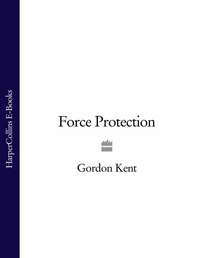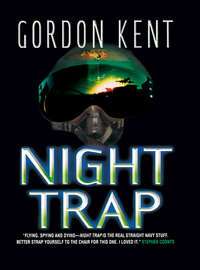
Полная версия
The Spoils of War
Abe started to say that he never said, and so on, and she interrupted, and so on.
“Bea enjoys being a caricature,” Peretz said, smiling to show it was a joke and failing. “Bea, beautiful Bea, light of my life, could we talk about baseball?”
“Esther says the Palestinians are terrorists and invaders and we ought to throw them out and keep them the fuck out!”
“‘We,’” Abe said, smiling at them.
“Arafat is a monster. He’s paying the terrorists, killing women and children, and pretending to want peace. Esther says they live out there like animals; they live in kennels; they’re barely able to read and write and they say they have ‘universities,’ my God!”
“When our great-grandparents lived in the shtetls, the Russians called them animals; they couldn’t read or write; they—”
“And they came here and they made the desert bloom! They built real universities! They made a nation!”
“On land that they took with the gun,” Abe said wearily.
“Because it was ours!”
Abe looked at Alan and gave an apologetic shrug. The silence grew longer, and Abe said, falsely cheerful, “What d’you hear from Mike Dukas?”
Maybe because she had had too much wine, Bea broke in with, “I’ll never forgive Mike Dukas for saying that Jonathan Pollard was a traitor! Never. Never, never, never!”
“But Pollard was a traitor,” Abe made the mistake of saying.
He was probably going to explain that somebody who sells American secrets to another state, even if it’s Israel, is in fact a traitor, but Bea said in a suddenly quiet voice, “I know what you think,” and she turned away and began to talk to Rose about having daughters.
Then things were easier for a while, and they got through dessert, and Alan looked at his watch and at Rose, and when Bea brought in coffee everything would have been all right if Rose hadn’t asked for cream, and there was embarrassment and confusion, and Abe explained the kosher rule of thumb and ended, smiling as at a great joke, “It’s a dietary law, which I’d be happy to explain the logic of if I understood it myself.”
Bea said, “If you were half the Jew you ought to be, you’d understand it.”
“But I must be a Jew—my mother was Jewish. Okay, Bea?”
She dropped her voice to a purr. “Abe means he’s a modern Jew. Just like everybody else—no funny foods, no embarrassing hat, no accent—oy veh! that he should have an accent!—he should be taken for a Presbyterian, maybe. Assimilate, right, Abe? That’s the magic word, right? Assimilate European high culture and never look back—Dostoevsky, Mozart, and Wittgenstein, right?”
In the embarrassed silence, Alan said, “Who’s Wittgenstein?”
She stared at him, broke into loud laughter, then patted him on the cheek. “I love you, Al—you’re perfect.”
Alan looked at his wife and got the slightly wide-eyed look: Say nothing; we’ll leave soon.
Salem Qatib lay on a table now. A big Israeli was leaning over him shouting Shit! again and again, and then he screamed at another man, “You stupid asshole, you’ve fucking killed him!”
Acco, Israel
Rashid Halaby sat in the dark with his back against a wall that had been built when Augustus was Caesar. The fancy American flashlight that his mother had given him for his birthday had a new battery, but it was running down now. He had his cell phone, but the signal couldn’t penetrate the layers of rock and mud brick above him. He was hungry. He was filthy. He was thirsty and had no water. His ribs hurt every time he took a deep breath or moved in a certain way, from a fall.
Salem, his best friend—taken. Beaten.
Rashid had run from the dig in Gaza, fought the men who had tried to stop him. He had run and left Salem to their attackers. Then he had hidden, then hitched a ride with workers from a kiln going back to their homes in Israel. He thought he might have killed a man—a Hamas man. With a rock hammer.
He couldn’t go home.
His hand dug almost of its own volition, scrabbling in the ancient dirt. He built a little pile of worthless artifacts; the bones of a small animal, some shells, a coil of brass or bronze wire, something that might have been a bead or a carbonized grain of wheat. And a bronze arrowhead with a distinctive cast barb, the type that the Scythians had used. Salem Qatib had taught him all that.
Sitting in the dark, he cried. Once he started, he couldn’t stop, and it went on and on, because too many bad things had happened. He wanted out. He needed to find Salem.
2
Acco
It was after midnight when Rashid emerged from the tunnels under Acco. He left by way of new digs into the crusader city; they were unguarded and had opened new routes to the surface for him. One came up just outside the north walls, close enough to the sea that he had to wade the last few yards through water filthy with refuse in his wavering flashlight. He washed as soon as the water looked clean. Then he picked his way along the stone shoring intended to keep ancient Acco from washing into the Mediterranean until he passed the walls and entered the industrial zone to the north. There he climbed up into the over-lit modern night and squelched his way to a bus stop. By the time a bus came, he was nearly dry. Neither of the two passengers gave him a glance.
He was going to the apartment of Salem’s girlfriend. He didn’t like her, but he had nowhere else to go. She would tell him what had happened. She would know where to find Salem.
Even his feet were almost dry by the time the bus dropped him a few meters from her apartment, a heavy building with too much concrete and too little glass. From the street, he could see a paid security guard in the lobby. He had been here before, many times. Salem had virtually lived in her apartment after he met her.
He walked around the building, hungry, thirsty, and every time he slipped his side gave a pulse of pain like a knife-jab. Yesterday, or perhaps two days ago, he had had everything a man his age could want—a job, a place to live, a wonderful friend—
Before he could start crying again, Rashid pushed himself up the steps and into the lobby. The guard did not raise his head from his Koran, and Rashid went by. The building had elevators that actually worked. Rashid hit the up button and waited. When the doors opened, he entered, panicked briefly when he saw a man coming up from the garage with him, and then made himself press the button for sixteen. The man smiled at him and then frowned at his shoes, good American basketball shoes now caked with filth and still damp.
“I got lost,” Rashid said.
The words hung in the air between them. Rashid knew immediately that talking had been a mistake. The other man looked away. The elevator came to a stop on twelve and the man got out, looking at Rashid as he left and then at the digital floor display as if to check where Rashid was going.
Rashid felt his hands begin to shake. He clenched them.
The doors shut.
Rashid was sure that the man intended to call the desk when he reached his apartment. If Saida refused to see him, he would be taken, perhaps handed over to the police.
The doors opened on an empty corridor. Rashid stumbled forward, rattled and apprehensive. Saida was a hard woman, but she wasn’t bad.
A slut, his mother said.
He got to her door, still confused about what to say when she answered, and knocked. He should have called before he came, but he had little money, and in movies, people could be traced by their cell phones. He knocked again, put his ear to the door and knocked as loud as he dared.
The elevator departed behind him with a loud hum and whir of hydraulics and pulleys. He listened to it as it ran all the way down to the lobby without stopping.
He knocked again.
She wasn’t home.
The stairwell was locked on the ground floor, he knew. He didn’t want to face the security in the lobby by going down the stairs.
The elevator was coming back up.
He tried to turn the handle of her door. Locked, of course.
He tried again, as if strength could break a lock. Suddenly, his apprehension turned to panic at the approach of the elevator and he put both hands on the knob and wrenched at it, throwing his weight against the door.
The knob suddenly turned freely, and he stumbled through and the door slammed shut behind him. He tripped and fell sprawling with a crash as loud as the slam of the door. His flailing hands found paper, clothes, pans—
The balcony light shone through the sliding doors at the end of a short hall. The floor of the entire apartment, bigger than the place he shared with his mother, was covered in papers and trash. Every item in every drawer, every sheet of paper, had been rifled and tossed on the linoleum.
The lock had been forced. That’s why he had got in so easily.
Two thoughts seemed to occur to him simultaneously: that whoever had done this might still be there, and that the lobby security might be coming up in the elevator, might enter and assume he had robbed her. The association of the two thoughts froze him on the floor.
The elevator ran and ran, a pulse-like vibration allowing him to count the floors.
It stopped. The doors opened. It was this floor; someone got out and walked swiftly up the hall, and then back down it. Rashid held his breath, sure, sure that it was the guard. Unable to move. With nothing between him and arrest but an unlocked door. The man moved and stopped.
And moved.
And stopped.
Rashid saw the guard’s feet under the door against the light of the outside hall. In his mind, he prayed. Inshallah, Inshallah, Inshallah.
Allah’s will was that the guard should walk on. He moved down the corridor a few more doors, stopped, and came back.
The elevator doors opened and closed again and the car began to move.
Rashid breathed.
What if she was here, dead? That was a foolish thought, born of fatigue and the alien landscape in which he suddenly found himself. It was like finding himself on the set of an American horror movie.
He couldn’t push it out of his mind. In movies, the dead person was always in the bathroom. The bathroom was the next room on the hall.
He wished he had a weapon. He forced himself to crawl to the light-switch and threw it. All the lights came on, revealing the destruction of Saida’s effects more cruelly than the hallway lighting had done. He peered into the bathroom and saw no body. Emboldened, he moved into the kitchen, found a clean glass on a paper on the floor, and drank her expensive bottled water from the refrigerator. He drank three bottles before he was done; then he ate a sandwich that was days old but tasted wonderful.
Saida’s absence left him with no options. No money, no place to go, no one to beg for help. But his brain began to run again, and the panic drew back to the edge of his consciousness.
He had to get out of this building.
He had to get money.
He had to find Salem, although it was increasingly clear to him that Salem was in deep trouble. Rashid knew he had found something—something wonderful. Salem could not hide his feelings from Rashid. And he had taken things from the dig—Rashid had seen them in a gym bag in Salem’s car.
The men beating Salem at the dig, pounding him with their fists and the flat of a shovel. Yelling abuse. Telling Salem he was a thief. And Rashid, Salem’s loyal friend, had run away and hidden in the old tunnels under the city.
He went into the bedroom. The epicenter of the apartment’s wreckage. He started to go through the piles of clothing the searchers had thrown on the floor.
Salem’s clothes were in a separate pile. Rashid dug into it for Salem’s Navy coat; he didn’t wear it in Gaza, where American sailors would hardly be popular, but he often wore it in Israel where the opposite was true. Up in the padding of the shoulders was Salem’s emergency stash. Salem had shown it to him, once, with a joke.
“It’s my fly-away money,” he had said.
A thousand dollars in American bills, crisp and neat. And a tiny hard rectangle that felt unfamiliar. Rashid pulled it out and tried to remember what it did. He took another swig of water and remembered. He was holding a flash card, the memory of a digital camera. And Salem had hidden it.
He pocketed it with the money. He took the peacoat, because it was warm and dry and it was Salem’s. It made him feel taller.
He still had to leave the building. He poked through the rubble of Salem’s life with Saida and found a pair of his boots, rubberized duck shoes that Salem had seldom worn because, he said, they hurt his feet and were too hot. They fit poorly, but with the peacoat they made him look like a young man of means. They gave him the confidence to take the elevator and face the man at the desk.
As the elevator descended, he found he was calm. Perhaps too tired to feel more fear.
“She’s not home,” the guard said when Rashid emerged. The tone was on the edge of accusation.
“I know,” Rashid replied, walking steadily to the doors. Whatever the guard might have wanted to ask, Rashid kept going, volunteering nothing, a tactic that seldom failed him, until he was out on the street in the cold winter rain. When the guard finally opened her apartment, he, Rashid, would be the obvious suspect. Then the police would join Hamas in searching for him.
His life here was done. He was going to find Salem, and the place to look was back in the occupied territory. So be it. Rashid felt the crisp bills in his pocket and headed for a bus stop.
Naval Criminal Investigative Service HQ, Naples, Italy
“Aw, shit!”
Mike Dukas was looking at a message directing him to do something—urgently—and his people were already stretched thin and he didn’t have time for Mickey Mouse. His hand hit the phone.
“Dick,” he growled, “get in here.”
“Your wish is my, mm, suggestion.”
Dick Triffler was the ASAC—the Assistant Special Agent in Charge, NCIS Naples. He was a tall, slender African American with an oddly high voice and a manner so precise that he seemed to be doing an imitation of somebody—Clifton Webb, maybe, or William F. Buckley. He had worked with and for Dukas off and on for years and had always been eager to transfer someplace else; Dukas had been astonished, therefore, when Triffler had requested to be ASAC when Dukas had taken over Naples as Special Agent in Charge. Asked why, Triffler, who had been running his own long-term investigation on the West Coast, had said, “I thought I needed a challenge.”
Now Triffler came in, buttoning a black blazer over a blueon-blue striped shirt and a thick silk tie that, in an office where Dukas was wearing an ancient polo, made it look as if the Prince of Wales was visiting a homeless person. “You rang?” Triffler said as he sat down, pulling one knife-creased pant leg over a knee.
“I got a Rummygram telling us we urgently got to get the closeout details on some poor ex-Navy bastard who died in Tel Aviv. What the hell, is this any way to run a war on terrorism?”
“What war on terrorism?”
“The one we’re waging twenty-four-seven throughout the universe. Isn’t that what all this paperwork is about? Jesus Christ, I’ve got five drunken sailors in foreign jails, three sex abusers, a phantom shitter on the Fort Klock, and we’re supposed to be looking under the beds for al-fucking-Qaida! Now I’ve got to scrape up somebody to do scut work in fucking Tel Aviv! Let the naval attaché do it!”
“You’re venting again. That’s what I’m here for, isn’t it—to listen to you vent. As you know, naval attachés have better things to do, like looking for a good place to have lunch, and dealing with dead sailors in foreign places is our charge.”
Dukas sighed. “Well—yeah, it’s our business—so who’s near Tel Aviv? The Jefferson’s already in the Canal. Athens office is too busy. We got anybody who can take a day and go?”
Triffler’s laugh was deliberately false. “How about Al Craik? He’s in Tel Aviv even as we speak.”
“How the hell do you know that?”
“Your wife told my wife.”
Dukas stared at him, stuck his lips out, raised an eyebrow. “That’s some network you got—two wives. You ever think of going into intelligence?”
Triffler stood—an impressive unfolding of long-boned limbs. “Am I done being vented at? You get in touch with Al.”
“You giving the orders now?”
“Somebody has to do it.”
Dukas scowled at his retreating back and then put out his hand for the phone and called Fifth Fleet, Bahrain, to ask where Commander Craik was staying in Tel Aviv.
Washington
In the Department of Defense’s (DoD’s) mint-new Office of Information Analysis, the workday went on longer even than in the White House. The atmosphere of the place was that of a great business enterprise at the top of its game—buoyant, aggressive, determined, and overworked.
For a thirty-five-year-old named Ray Spinner, the place was salvation. He’d got bounced from the Navy for passing privileged information to his power-lawyer father; Dad had placed him in OIA to make it up. Now, Spinner reeled through his workdays in a frenzy half joy and half terror (Could he measure up? Could he be hardline enough? Did he dare to ape the bosses and wear power suspenders?). It was better than the Navy had ever been, but scary.
Sitting in a cubicle among twenty other cubicles, he was watching a message come up on his computer. New data came first to people like him; he knocked out the obvious bullshit and passed the rest up the line. The criteria had little to do with either authenticity or reliability and everything to do with usefulness to the office’s main goal—just then, getting something going in Iraq. He had already made the mistake of knocking out a report from a defector who said he had overheard a third party say that sarin gas was being manufactured nights and weekends in a Baghdad elementary school; it had been made very clear to him that this was precisely the kind of intelligence that was wanted, and if he made the same kind of dumb-nuts mistake again, he’d find himself handing out towels in the men’s room.
Spinner therefore really bore down now. The bit he was looking at struck him as a no-brainer—forwarding of a Tel Aviv police department memo about some dead A-rab.
Yarkov District police tonight reported death of Salem Qatib, Palestinian, resident West Bank. Held US student visa 1994-95, ex-US Navy reserve.
Meaning that the informant thought the dead guy might be of interest because he had US connections. Wrong. The real question was, Was he a terrorist? Well, let’s see. Spinner brought up OIA’s own list, which was different from the CIA’s and the FBI’s and much longer, and he didn’t find Salem Qatib as a terrorist but did find him on the Purgatory list (“not in Hell, but nearby”) of people “tracked for conflate background”—that is, for combining at least two suspicious factors. Like being Palestinian and having served three years in the US Naval Reserve.
As a cryptologist.
Hey, whoa!
Cryptologists had high security clearances and were tracked for years after they left the service because they had had access to sensitive stuff—codes, for example, that might not be changed for a long time. So Qatib must have been tracked, and he appeared to be clean, but OIA still had him on the conflate list because Palestinian plus cryptology equaled possible spy, right?
So. It wouldn’t do to make another mistake. Which he could do either by bumping this one up the line (but the word was that the White House was tired of the Palestinian problem), or by killing it (but maybe there was a secret interest in Palestinians that he didn’t know about).
Naval Reserve. That meant that the Navy would have to do a red-tape write-off—certify that the guy was dead, close his files, tie up all the loose ends of debts and pensions and all the other petty crap that the bean-counter mind could think of. So who did that?
The Naval Criminal Investigative Service, that’s who.
Nearest office to Tel Aviv? Athens. He looked at the Athens roster, didn’t recognize any names—Spinner liked to deal with friends—and noted that Athens was actually under NCIS Naples, so looked there. And my God, Mary, look at that—the Special Agent in Charge, Naples, was an asshole named Mike Dukas!
Spinner grinned.
Mike Dukas had been the prick who’d got him read out of the Navy.
So Spinner forwarded the Qatib report to Michael Dukas, SAC NCIS Naples, blind-copied to his own boss at OIA, with the terse order, “Check implications anti-terrorism and terrorist connections and report back ASAP.” He put the name of OIA’s head at the bottom—a stretch, but permissible. He sent it Urgent.
Up yours, Dukas. He could just see the overweight, glowering, blue-collar Dukas hunched over the message, trying to figure out why he’d been told to jump, and to jump urgently.
Spinner grinned. He stood, stretched, looked over his cubicle wall at a guy going by wearing red suspenders. Yeah, he’d look drop-dead good in those.
Tel Aviv
Alan Craik was sitting on a hotel-room bed, a telephone in his hand. His wife, mostly naked, came out of the bathroom and turned, her back to him, to rummage in a suitcase. He grinned at her back. “Sexy buns.”
On the telephone, a voice barked, “Dukas.”
“My God, you mean I was holding for you? If I’d known it was you, I wouldn’t have waited.”
Rose ran back toward the bathroom, an irrelevant nightgown fluttering from her shoulders.
“I got a favor I want you to do me.”
“The answer is no.”
“No, the answer is yes. There’s nothing to it; it’ll give you something to do in Tel Aviv while Rose shops.”
“How the hell’d you know where I am?”
“Rose talked to Les a couple days ago. Les talked to Triffler’s wife. You can’t have secrets, man.” Les—Leslie—was Dukas’s new and pregnant wife; she and Rose were pals. “Anyways—”
“Yeah?”
“This is strictly routine—I gotta have somebody from the Navy get a death certificate. A guy died, ex-Nav. Find out what the story is, blah-blah-blah. Anybody could do it.”
“Get anybody.”
“There isn’t anybody! Look, the guy died; we gotta make it possible to close out his file, notify next of kin, all that. Just do it, will you?”
“Meaning what?”
“Piece o’ cake.” Dukas told him where to go in Tel Aviv—the main police building on Dizengoff Street—and the victim’s name—Salem Qatib.
“That’s an Arab name.”
“Palestinian.”
“Mike, a Palestinian who’s ex-US Navy?—in Tel Aviv—?”
“Just do it, will you? Fax me the death certificate and anything else you get. And don’t overdo it—forget you’re an intel officer and just be my errand boy. I’ll fax the dead guy’s paperwork to the embassy.”
He would have objected, but Dukas had hung up and his wife came out of the bathroom, and when she saw his face, she said, “Now what?”
Bayt Da Border Crossing, Gaza
Rashid spent the bus drive across Israel handling his papers and his Israeli passport, and imagining how he might handle the border crossing. He was dirty—even his eyes felt dirty—but the other passengers going to Gaza weren’t much cleaner.
When he had worked on the site, it had been easy, because he had been in Salem’s car and Salem had a work permit—bogus, in that it mis-stated Salem’s reasons for being in Gaza, but real enough and issued under the seal of the Palestinian Authority. Salem knew how to get such things.
In two hours of tired worry, Rashid concocted a simple story to cover his visit; a girl he had met in Acco, the need to see her again. True enough, if he substituted Salem for the girl. He rehearsed his story to himself, staring at his passport and his travel documents, until the bus slowed to a stop in the morning line at the border crossing. The bus was half empty. Rashid felt alone, and his anxieties were pushed into his stomach and his limbs. He had to put the passport down because it showed the trembling of his hands.







